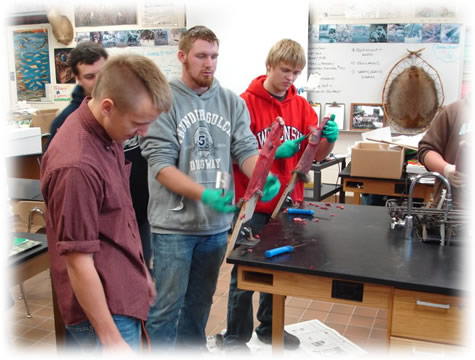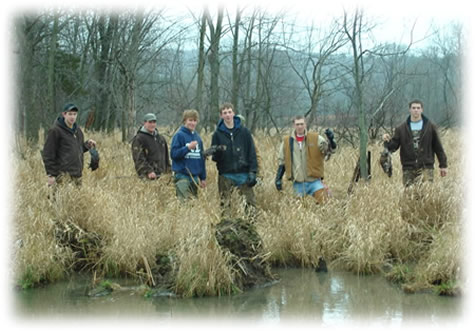Americans are fortunate to live in a land with abundant natural resources, including forests, wildlife and fertile lands to grow crops. The management of our natural renewable resources recognizes that there is a surplus which can and should be harvested, or it will be wasted.
Wildlife, including furbearers, is an annually renewable resource. Most species produce more young in a year than can survive, and that also goes for the beaver. Good management plans allow for the harvest of excess numbers of furbearers, fish and game.
Habitat is a real key to furbearer management. All animals, including the beaver, are habitat dependent. Beaver have needs for survival, including a suitable and available food supply, denning sites to raise young and a degree of protection from enemies. Whenever the habitat cannot meet one of these needs,
that particular species cannot thrive.
Dense populations of furbearers and predators are not in the best interests of man or animal, and this must be addressed by wildlife managers. There is an abundance of information on what happens to furbearers when they are neither managed nor controlled. While some people think that animal populations will grow and stockpile when no harvest is allowed, such is not the reality. Nature has its own controlling mechanisms, and they are far from kind. Because their survival depends on keeping their territories, encounters between beavers when an intruder is discovered can be very violent, often times resulting in serious injury and even death.
Each species is its own worst enemy when its population is not controlled.
This is a key statement that I reinforced throughout my 31 years of teaching high school biology and related electives in wildlife ecology. Good furbearer management programs seek to control species populations so territories do not touch or overlap during the period of the year when animals are territorial. Diseased animals can then die without opportunity to spread the diseases, and a reasonable food supply will allow both strength and health during the time of year when the species disburse to seek mates and new territories.
Throughout most of those years teaching high school students I was, and continue to be, a certified trapper education instructor for the state of Wisconsin. Many of my former students continue to trap, and several have become trapper education instructors. Students were able to see for themselves the effects of managing furbearers by trapping, in this case muskrats, year after year in the same area. Responsible and ethical trapping should always be followed by responsible and knowledgeable fur handling. This was a priority in my wildlife class.
 |
 |
I continue to teach trapper education classes in Wisconsin. Trapper education was begun in the early 80s in this state, and I became an instructor in 1986. Today the Wisconsin Department of Natural Resources works in cooperation with the Wisconsin Trappers Association to administer the program and provide volunteer instructors. We believe that trappers create a good image when they engage in responsible and ethical pursuit of our furbearing resource.
Trapper Education teaches new or inexperienced trappers ethical trapping procedures, the most humane trapping methods, the history of trapping in Wisconsin and North America, and basic wildlife management principles. It is also important for trappers to learn and understand the importance of maintaining good relationships with landowners, other outdoor enthusiasts, and managers of our natural resources. The Wisconsin Trapper Education course provides a solid beginning to trapping education — an education you will use everyday on the trapline. For more information go to:
http://dnr.wi.gov/topic/Trap/
Following are pictures from a trapper education class held here in Boscobel.
Students range in age from 6 through 60-something.
The key to understanding wildlife management is education.
|

